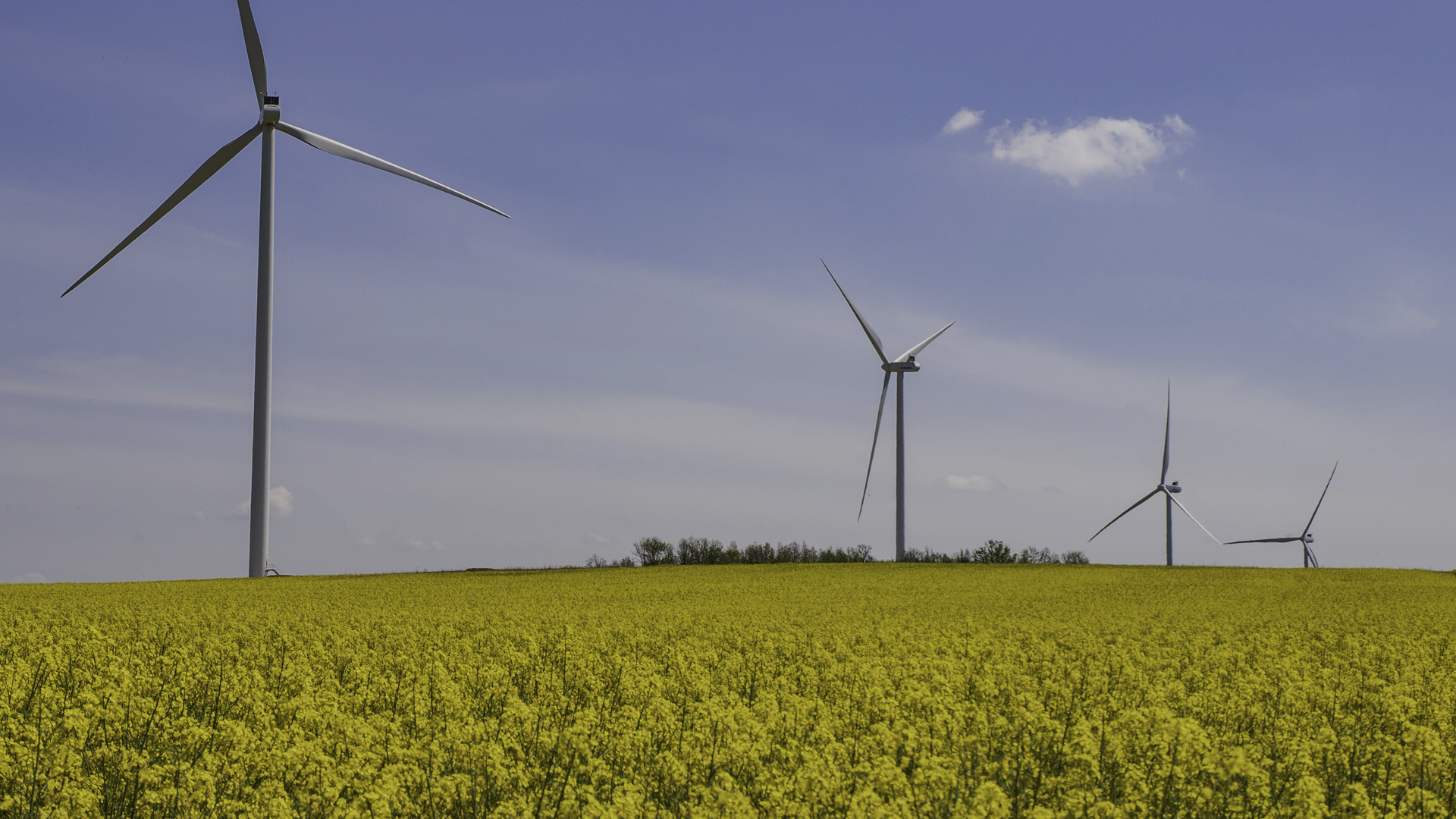28.01.2020 | Expensive and controversial German energy turnaround
Getting away from coal and nuclear
All the nuclear power plants in Germany will have been shut down by the year 2022. According to the German government's plan, our neighbour will also have phased out coal power by 2038. Germany has taken on quite a task. As tax-payers and power customers, citizens will have to dig deep into their pockets to pay for this energy turnaround – and the political debate on the right way to proceed continues.
The dispute on energy policy in Germany has been going on for decades. Originally, it was the nuclear phase out that brought emotions to a boil. Now, the planned elimination of coal power is triggering a new controversy in Europe's largest economy.
The German government has come to an agreement with the affected federal states (Nordrhein-Westfalen, Brandenburg, Sachsen, Sachsen-Anhalt) regarding the shutdown schedule and other details pertaining to particularly climate-damaging brown coal power plants: By 2038 at the latest, the last coal-fired power plants in Germany will be taken off grid. In this time frame, the affected regions are to receive a total of 40 billion Euros to restructure their economies. The energy suppliers RWE and EPH will receive compensations totalling 4.35 billion Euros for the early shutdown of their power plants. Up to 4.8 billion Euros have been reserved to make the retirement transition easier for affected workers.
Much too late
Climate protection advocates fiercely criticise the plan. They say old coal-fired power plants are being taken off grid too slowly and they are angered by the fact that a new coal-fired power plant – Datteln 4 in NRW – will be allowed to go into operation. They also find fault with the government’s and states’ neglect to include the expansion of renewable energies in the plan.
Conflicting interests collide on the topic of the coal phase-out. Ecologists want a fast reduction of greenhouse gases. State policy-makers worry about the loss of jobs – especially in the structurally weak eastern part of Germany. Industry demands reliable, affordable power supply. The German Minister for the Economy, Peter Altmaier (CDU), describes the energy turnaround as "open-heart surgery on the economy."
German brown coal
Despite its poor CO2 footprint, brown coal has long been the dominating resource for power generation in Germany owing to large domestic reserves. However, the share of coal power has already dropped significantly in the last five years. In 2019, 18.8 per cent of power came from brown coal and 9.4 per cent from black coal, whereas 40.1 per cent was already coming from renewable energies, primarily wind power.
According to a study by the think tank Agora, CO2 emissions in Germany decreased by over 50 million tonnes last year as compared to the previous year. Since 1990, climate-damaging carbon dioxide emissions have dropped by 35 per cent. The significant price rise for CO2 certificates in European emissions trading have made coal-generated power less profitable.
Pointless billion-Euro gifts
Hence, critics think the expensive, politically-prescribed coal phaseout is unnecessary. Sooner or later rising emission prices will make all the coal-fired power plants unprofitable. "The economically forced shutdown plans are nothing more than pointless billion-Euro gifts to power plant operators at the expense of tax payers," concludes the FDP energy legislator Lukas Köhler. "The government and states are prepared to pay a two-digit billion amount for an outcome that will occur on its own and in any case," wrote the "Handelsblatt" newspaper in an editorial.
In order for the energy turnaround in Germany to succeed, much more green power will be needed. Along with the first eight coal-fired power plants, the last six nuclear power plants will be shut down by the end of 2022. Nuclear energy was still contributing a good 12 per cent to the power mix last year.
In the past two decades, renewable energies from wind, sun and biomass were massively subsidised in the three digit billion range (20 to 25 million Euros per year) thanks to the Renewable Energy Act (EEG). A special levy on the power price funded this support. The result: Germany's citizens now pay the highest power prices in all of Europe. Painful relocation decisions from the aluminium production and wafer (chips) manufacture industries are the consequence.
Opposition against power lines
In order to transport Northern Germany's abundant wind power to the industrial centres in the south, a broad power line network is required. Only a small section has been completed to date. Popular resistance is rising not only against "power line highways", but also against new wind turbines. Residents find them too loud or too ugly. Animal-rights activists fear that rare birds will fall victim to the rotor blades. Often times, it is nature conservation associations that forestall the energy turnaround in Germany with lawsuits opposing wind turbines.
Critics, such as the popular economist Hans Werner Sinn, also find fault with the German energy turnaround owing to the technical and economic inconsistencies – for example in long-term power storage – and are demanding a more prudent course.
Continuing with coal & co.
Climate scientists say that the mining of coal reserves must end worldwide in order to keep the rise in global temperatures in an acceptable range. However, despite the forest fires caused by high temperatures, Australia, for example, continues to rely on coal and other fossil fuels. About half of the power produced in the country is generated by coal-fired power plants, and one-fifth comes from gas. Coal exports to countries such as China and India amount to about 200 million tonnes (2018), or about CHF 40 billion.
Other countries – above all the USA under Donald Trump, as well as China, Russia, and Norway – also continue to advocate fossil fuels. A study published by the United Nations Environment Programme confirms this trend. The expansion plans in these countries are not compatible with the Paris Convention climate goals.

